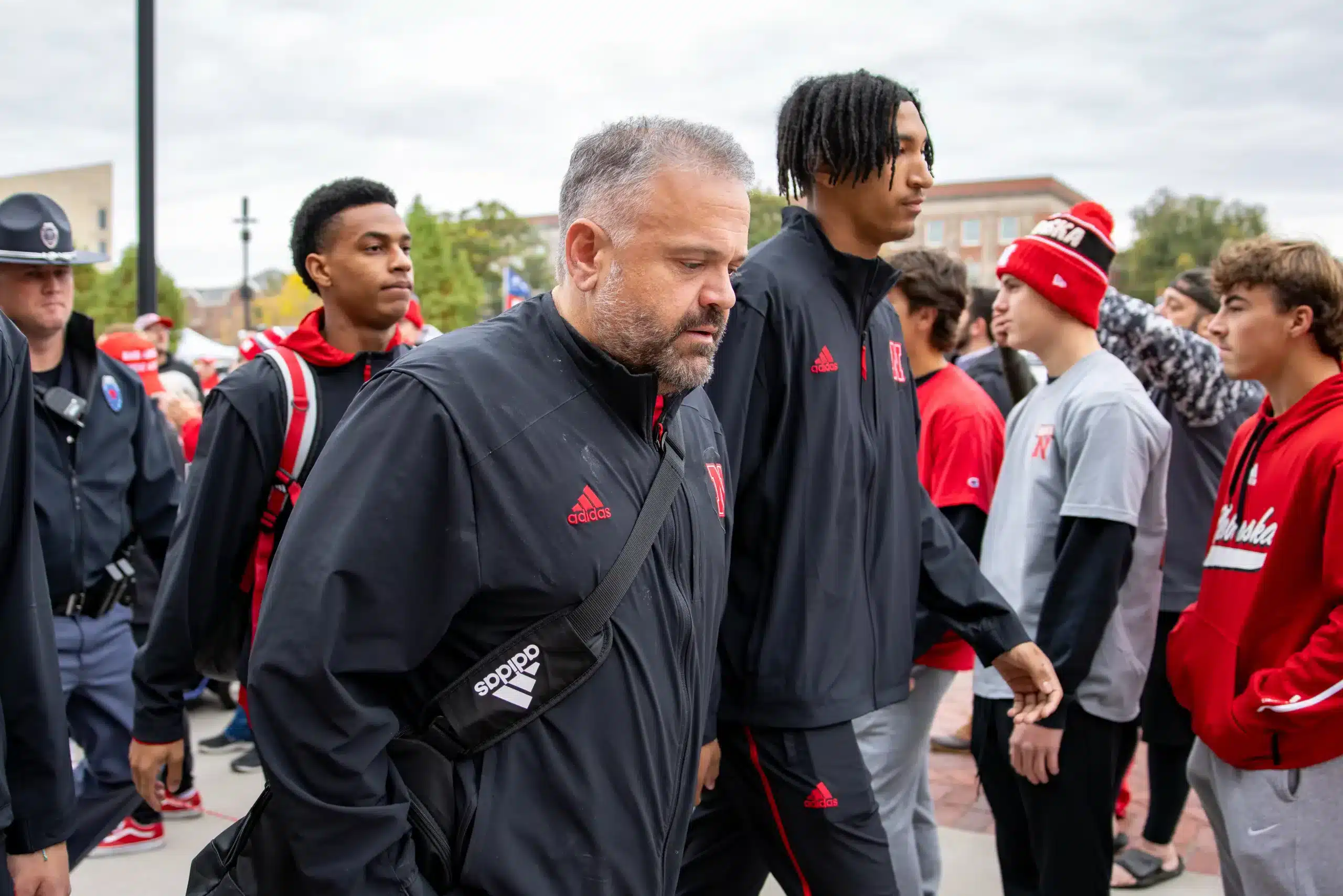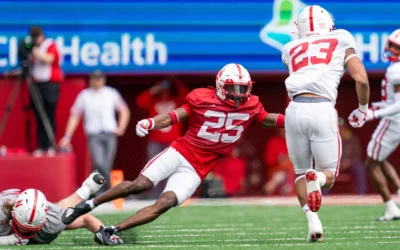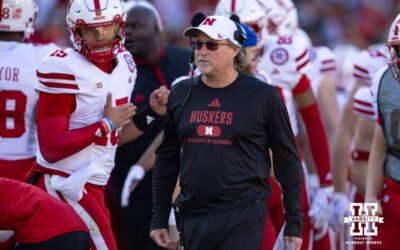Nebraska football remains under the spotlight as fans grapple with the Huskers’ ongoing struggles. Sam McKewon from the Omaha World-Herald joins Hurrdat Sports Radio hosts Ravi Lulla and Damon Benning for an in-depth discussion on key concerns for the team, including Dylan Raiola’s performance, coaching responsibilities and offensive strategies. The trio dissect what’s holding the team back and where changes might be essential moving forward.
Dylan Raiola’s Challenges and Accountability
Nebraska’s quarterback, Dylan Raiola, gets brought up first and whether his struggles stem from his performance or the coaching staff’s management. Benning notes that the expectation in past eras was for every player to embody a team-first mindset. In today’s culture, however, Benning suggests that fans often assign blame based on their personal preferences, leading to polarized opinions on whether Raiola or the coaches are at fault.
McKewon adds context by noting some coaches’ statements, including remarks about players needing to reach Raiola’s level. He felt these comments sometimes seem exaggerated and put added pressure on the young quarterback. While Coach Matt Rhule has made efforts to avoid singling out players for mistakes, his handling of the Raiola situation raises questions for McKewon, who believes such statements can backfire.
Coaching Decisions Under Scrutiny
They shift the conversation over to Rhule’s recent public remarks following the Ohio State loss, where he spoke about “championship mindsets.” McKewon feel as if the timing was off, describing the comments as “self-congratulatory.” He points out that many coaches have hard jobs but expressing that publicly after a loss may not resonate well with fans and media alike. McKewon and Benning debate the importance of context, with McKewon suggesting that Rhule’s words could be misinterpreted as self-praise rather than constructive criticism.
Strategic Challenges in the Red Zone and Play-Calling
McKewon highlights statistics that underline Nebraska’s offensive issues in the Big Ten. With the offense averaging only 16.6 points per game across 15 conference matchups under Rhule, McKewon expresses concern that Nebraska’s current strategy lacks the effectiveness to win consistently in a competitive conference.
The team’s slow pace, especially in high-stakes moments, was another point of frustration. McKewon notes that after a significant throw, the Huskers seemed hesitant, giving the opposing defense time to regroup instead of keeping momentum. This indecisiveness, he suggests, reflects broader operational concerns within Nebraska’s offense.
Defense vs. Offense: Balancing Expectations
As the season progresses, the performance of Nebraska’s defense has continued to spark debate. While McKewon believes the defense has generally played well enough to win Big Ten games, he admits there are moments when the defense failed to meet its high standards. Benning agrees, noting that even when the defense wasn’t performing at its best, it was still statistically strong. This contrast further highlights the struggles within Nebraska’s offense, which McKewon describes as lacking the necessary edge to capitalize on the defense’s efforts.
Moving Forward: Fixes Needed for Big Ten Success
Finally, McKewon emphasizes the need for Nebraska’s coaching staff to address these offensive issues, potentially making adjustments in the offseason. He was blunt in his assessment that, without meaningful changes, the Huskers’ offense isn’t built to compete for a Big Ten title. His perspective leaves fans with much to think about as the season continues, hoping for improvements in Nebraska’s game plan and overall execution.




